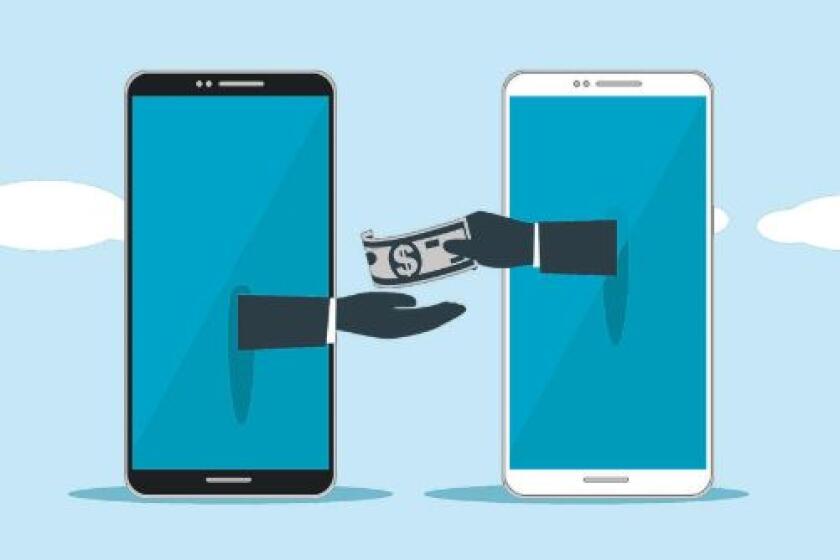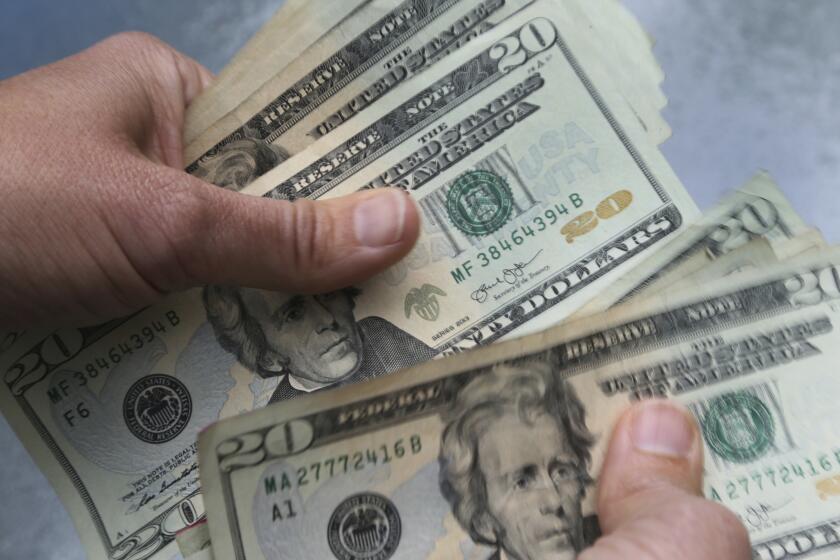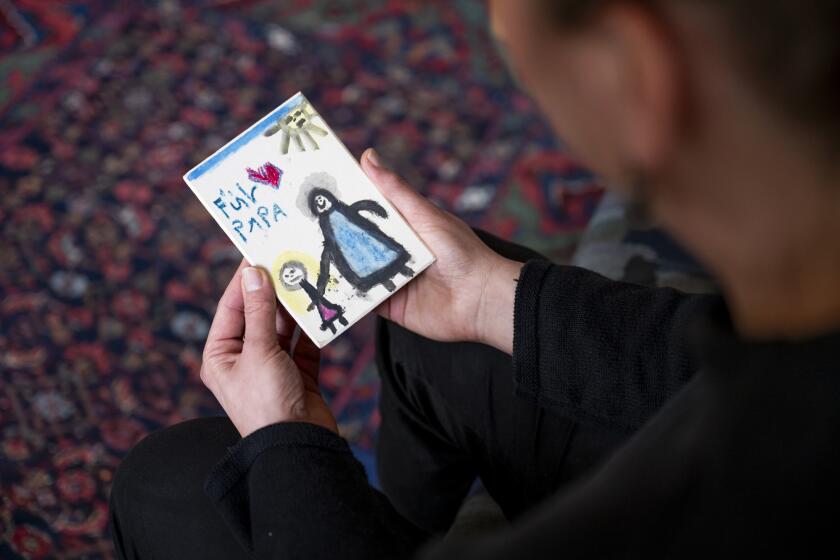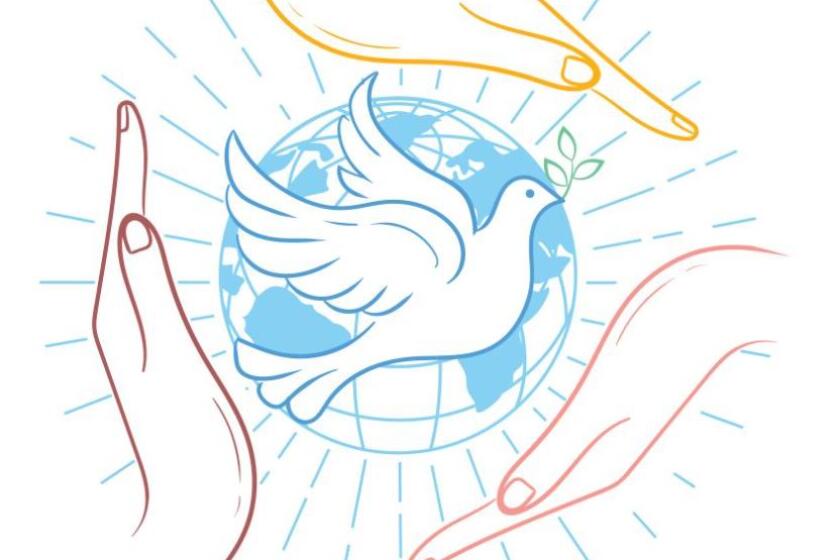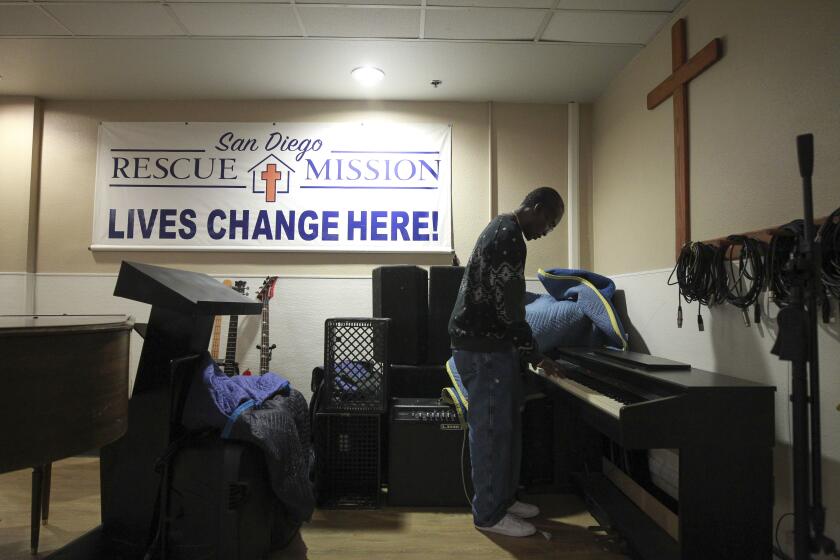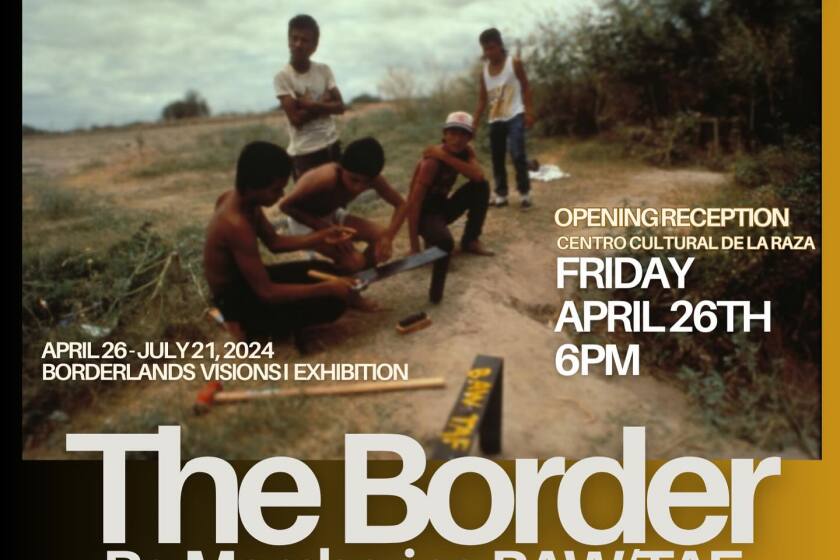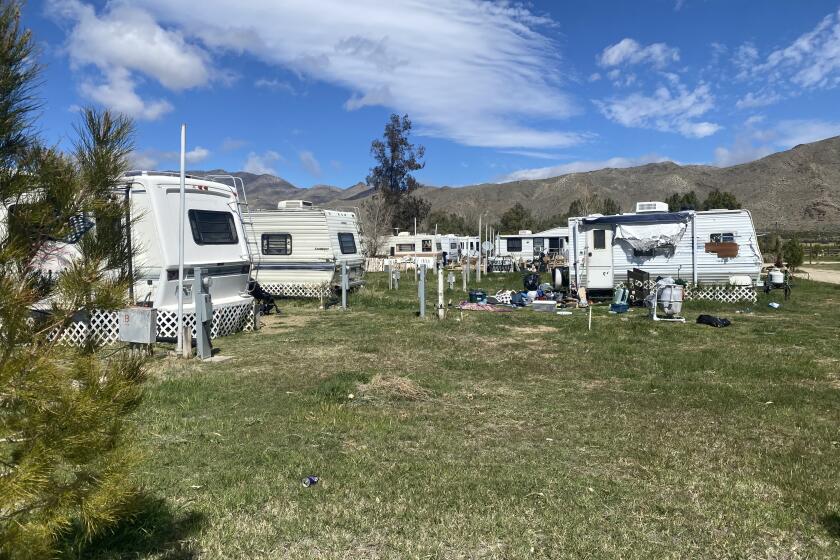Opinion: Someone deposited $70,000 into my account and now I’m banned from banking
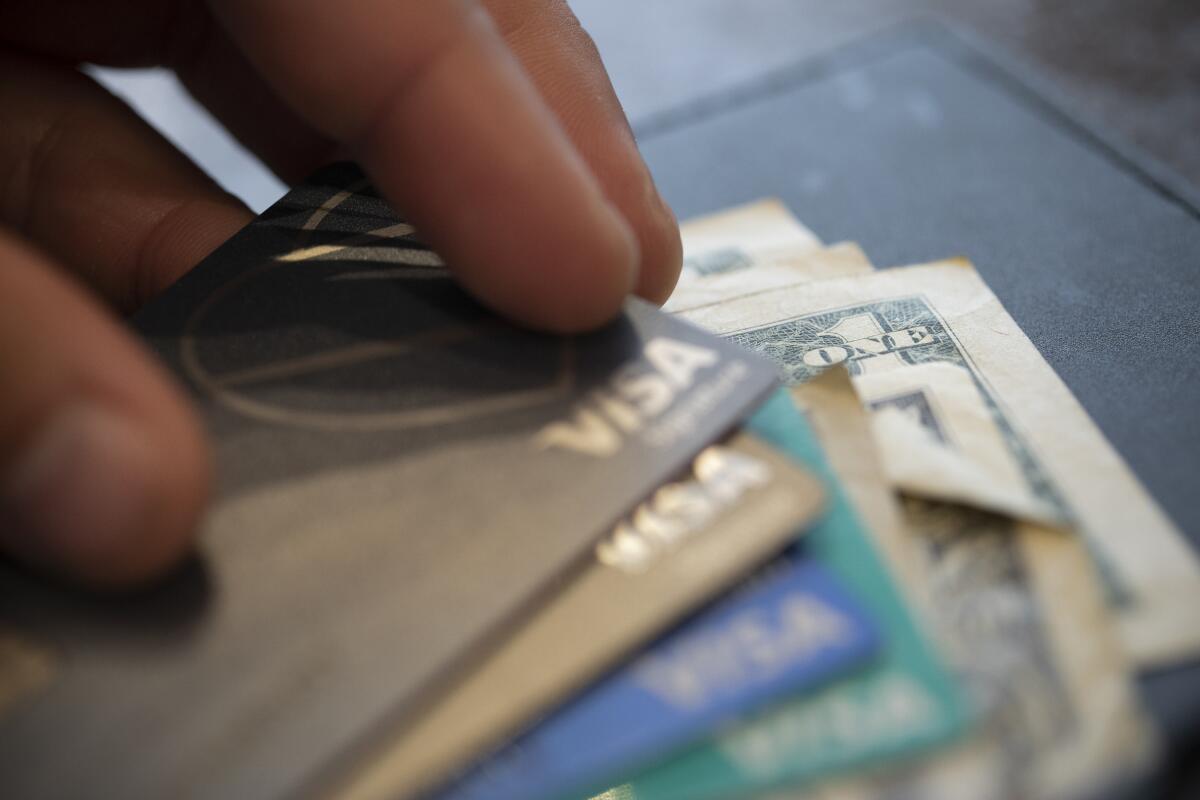
Cervantes is a marketing and communications professional who is currently unemployed. She lives in Chula Vista.
For over 30 years, I used banks, had accounts and credit cards, and swiped left and right to manage my money online until a weird deposit took the convenience of banking away from me.
Money sometimes just feels like it’s not “real” anymore.
No one is selling anything. Instead, it’s just a simple way for people to help each other.
In 2016, I got a suspicious charge from PayPal, for something I didn’t buy. In fact, I hadn’t purchased anything online for a while.
Then in 2017, I received a fraudulent $1 charge from The New York Times. I knew it wasn’t legitimate because I don’t subscribe to The New York Times or any other online newspapers. I had no idea why I was getting charged. After that, my bank decided to close my account for my own protection, and open another one, saying this might be a scam.
Shortly after that, there was a bigger scam — one that would change my relationship with banking: I received a $70,000 deposit to my account. I just happened to be checking my balance online to see if my rent payment posted, and that’s when I saw it. I went to the bank the very next morning, figuring it would just close my account again and open another. But that’s not what happened.
The bank closed my account, for good, and that was that. It never said I’d be reported to ChexSystems, a consumer credit reporting agency that receives information on closed accounts from financial institutions and works with them to assess the risk of new accounts. But I was reported, and it turns out I was not going to be able to open an account with another U.S. bank for a long time. I thought of opening an account in Tijuana, but the Mexican banks have larger service fees, especially for those using foreign currency. I didn’t want to deal with a fluctuating currency rate, either.
According to my former bank, that $70,000 deposit came from a Nigerian account, and the money disappeared the next day, so scammers reportedly used me and my account to stash their funds for less than 24 hours. I thought it was way beyond my control. I didn’t touch the money, leaving it up to the bank to investigative or fix the problem. It didn’t. The money wasn’t mine. I didn’t touch it.
This time, the bank never offered to close my account and open another because of the previous two fraudulent charges. I can only guess that it didn’t want me as a customer anymore.
Nothing affected my credit, but suddenly I had no checking account or savings account.
I had no idea that something like that was even possible. I thought it was a mistake. I assumed that someone wrote down the wrong account number on the deposit slip. But the bank confirmed it was a direct transfer.
I had no idea where the money came from, but I was told it was fraud.
So what then? How was I, a professional woman, going to function financially?
I tried to open an account at another bank, but I couldn’t, and every time I tried a different bank, I was told I wasn’t qualified, without further explanation.
I didn’t understand until I came upon someone at a local credit union in 2020 who finally explained it and said I was banned from opening a new account at any other banks until 2022. I am not angry. I feel stupid because I should have been more vigilant and I should have called the FBI. But I trusted the bank. If I had taken the matter into my own hands and been more diligent maybe I would not be in this predicament.
I started doing the math. Every time I cashed my paycheck without having a checking or savings account, I’d be charged $5 — $130 a year. If I needed to pay for something online, I would need to get a prepaid credit card and that also came with a $5 surcharge. Every time I reloaded the card, I would have to pay a surcharge.
I’ve always been frugal, but like most people on a budget, I try to save when I can. So I switched to money orders and went “old school.”
Then the pandemic hit. I lost my job a year ago, and I got creative hiding my cash. I had cash savings, but had to be careful carrying money around. Money got complicated. After I was laid off, I applied for unemployment and started getting checks in December and January. I worked for a few months, and then reapplied for unemployment again and received benefits from March to May. Fortunately, I had enough savings to cover my costs. Thank goodness for Walmart, where I was able to cash those unemployment checks, but I had to also pay a $4 service charge every time I cashed one.
I’m still seeking employment, and I’ve learned to live with my new money management style, at least for now. I’ve always been very good at budgeting, because my mother used to be an auditor, so I learned about money at an early age. But honestly, the last four years have taught me that I really don’t need a financial institution to live day to day even though it would be more convenient.
I would caution others who do use banks to keep an eye on their statements often.
Get Weekend Opinion on Sundays and Reader Opinion on Mondays
Editorials, commentary and more delivered Sunday morning, and Reader Reaction on Mondays.
You may occasionally receive promotional content from the San Diego Union-Tribune.
